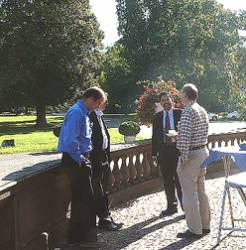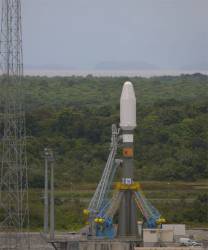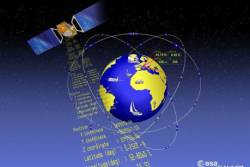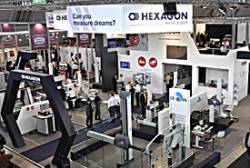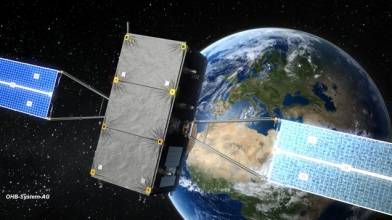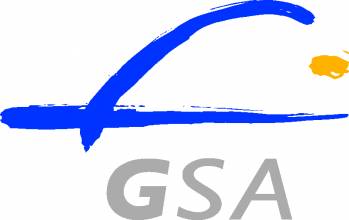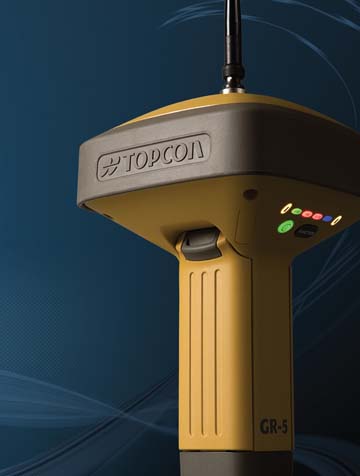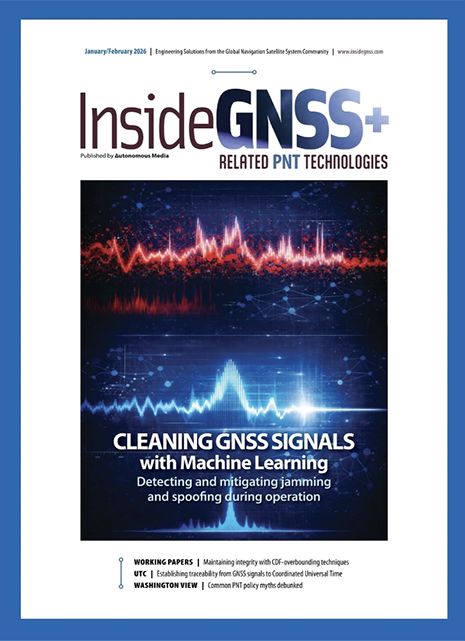GLONASS, Galileo Finances Star at Paris Air Show
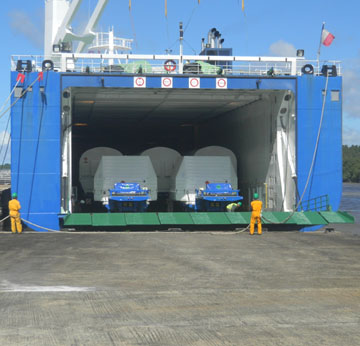 The two Soyuz ST-B launchers and Fregat-MT upper stages arrived at Kourou harbor on June 18 are the most powerful Soyuz-Fregat combination available, intended to launch the four Galileo IOV satellites. Arianespace photo
The two Soyuz ST-B launchers and Fregat-MT upper stages arrived at Kourou harbor on June 18 are the most powerful Soyuz-Fregat combination available, intended to launch the four Galileo IOV satellites. Arianespace photoSupporters of Europe’s Galileo system got some good news today (June 22, 2011) at the Paris Air Show: savings in the program have freed up funds that may be able to support acquisition of at least six additional spacecraft by 2014.
Taking part in a signing ceremony for the final Galileo work packages, European Commission Vice President Antonio Tajani announced that improved program management and cost-cutting by industry vendors could free up €300 million ($482.8 million) — enough to ensure that 24 satellites could be launched by 2015.
By Inside GNSS

